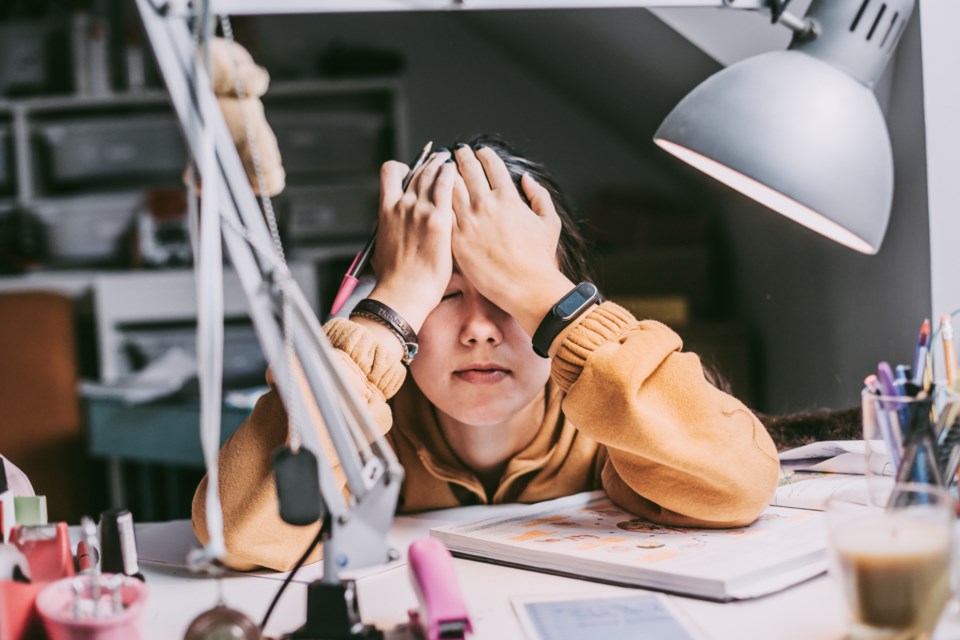When I connect with my patients – virtually or in person, we often check in with how we’ve been coping during the pandemic.
The pandemic has brought with it heightened levels of stress in every part of the world. All of us have been affected with greater impacts on the most vulnerable, including young children, our elders, the homeless and others who have been socially isolated.
At the beginning of last year, I had optimistically expected that we would be united in supporting one another and beating the pandemic.
Instead, we’ve seen unforeseen levels of stress and divisive responses to that stress. Previously normally functioning families have been divided by conflicting responses to the pandemic. Many of my patients have reported that they are no longer talking to some of their siblings because of the gulf between their personal pandemic responses. Mutual love (or at least tolerance) have been replaced by anger and distrust.
At the beginning, we were divided by just the belief that the virus was a serious threat and the need for social distancing. The divisions grew deeper with debates on mask wearing. Today, family discussions about vaccinations are more heated that those involving sex, politics, religion and money.
We are all vulnerable to stress, and stress is an inevitable part of being human and living in this world. For each of us, there is an optimal level of stress.
In situations where the challenge is far below our ability to manage (such as a really easy job or class well below our potential), we feel bored (and likely spend a lot of time looking at our phones).
When we hit the sweet spot where the challenges of the situation are perfectly matched by the peak of our abilities, we are in the zone that has been called the state of flow by psychologist Mihaly Csikszentmihalyi (who just passed away on Oct. 20 at age 87).
But good stress (eustress) becomes distress when the challenges of our situation exceed our capacity to cope. This can happen with a heavy academic load for a student, unrealistic work demands in an understaffed office, or a hospital or clinic overwhelmed with multitudes of seriously ill patients.
In these situations, most of us initially feel helpless and anxious. If these overwhelming demands continue, many eventually feel hopeless burnt out and depressed.
When pushed to the extreme, we behave in different ways – expressing our personal stress response. We’ve seen the pandemic stress response expressed as anxiety in most (including young children), depression in some (including many teens) and anger in others (a lot of adults).
Fortunately, there is help available once we recognize we need it. A starting point is looking at your situation and distinguishing those aspects of your life over which you have no control from those over which you do have control.
For temporary situations over which we have no control, we need to accept them (The only other choice is to get upset or angry but that won’t change the situation). We need to recognize those areas of our life over which we do have control and choose to act according to our deepest positive values.
The pandemic has shown us that we can only get through this by working together. The sooner all of us have accepted this reality, the sooner we will have it under control.
The Burnaby Primary Care Networks are presenting the Burnaby Seniors Health & Wellness Fair on Nov. 18, from 10 a.m. to 3 p.m. This free virtual event for seniors will provide activities and information on different services and programs available in Burnaby.
I will be up first, presenting From Surviving to Thriving: Strategies for Coping with the Stress of the Pandemic, Aging and Life. For more information about the Seniors Fair: https://burnabypcn.ca/seniors-fair/.
On Nov. 25, I’ll be speaking on emotional wellness, providing practical tips on managing stress and difficult emotions, including key emotional health skills that we all need to practice during the pandemic and throughout our lives, beginning in childhood.
To learn more and sign up for this free Zoom workshop, check out the Burnaby Division of Family Practice’s website: https://divisionsbc.ca/burnaby/for-patients/empowering-patients
Dr. Davidicus Wong is a family physician. His Healthwise Column appears regularly in this paper. For more on achieving your positive potential in health, read his blog at davidicuswong.wordpress.com.



